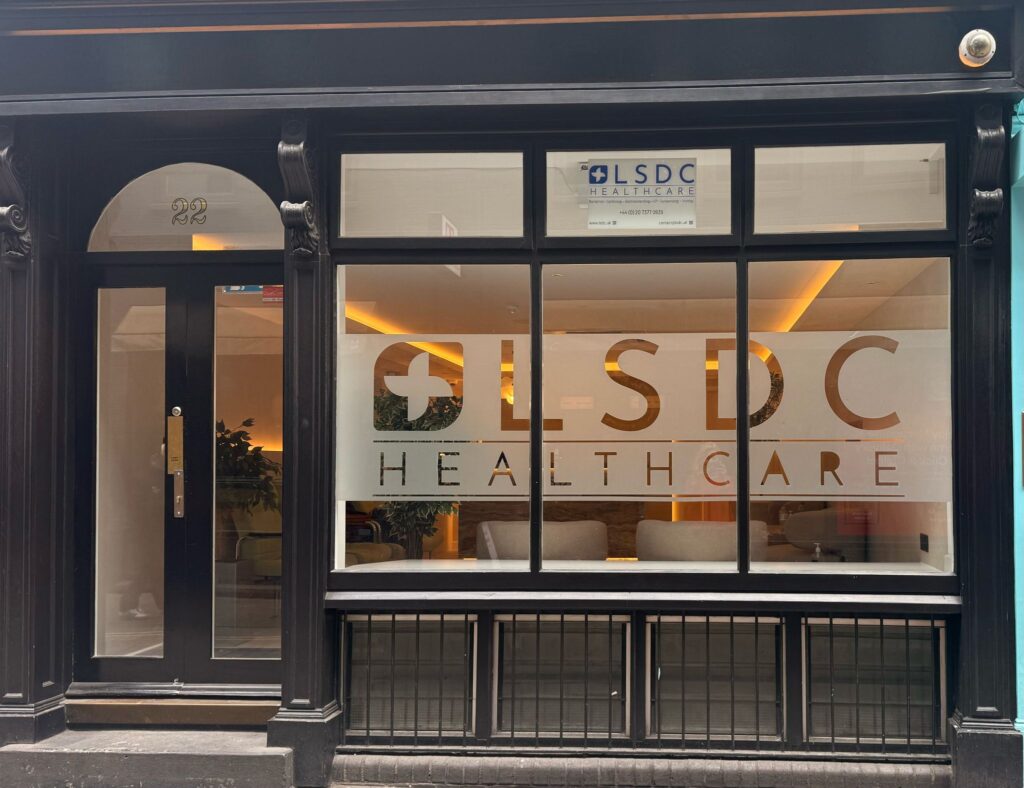Private FMT in Central London
At LSDC Healthcare, we will soon be providing access to private faecal microbiota transplant (FMT) in Central London, delivered by consultant gastroenterologists with expertise in microbiome-related conditions.
Located just minutes from Liverpool Street Station, our clinic combines scientific precision with consultant-led care, offering patients innovative treatments for recurrent infections and emerging microbiome-related disorders.
What Is FMT?
Faecal microbiota transplant (FMT) is a procedure where healthy gut bacteria from a screened donor are transferred into the digestive tract of a patient.
The goal is to restore a balanced gut microbiome, which can be disrupted by antibiotics, infections, or chronic disease.
FMT is most commonly used to treat recurrent Clostridioides difficile infection (C. diff), where it has a success rate of over 85–90%.
Who Might Benefit from FMT?
FMT may be recommended for:
Recurrent C. difficile infection not responding to antibiotics
Severe antibiotic-associated diarrhoea
Selected cases of ulcerative colitis under clinical guidance
Emerging indications being studied in:
Irritable bowel syndrome (IBS)
Metabolic syndrome
Other microbiome-related disorders
How Is FMT Performed?
FMT can be delivered in different ways, depending on the patient’s condition:
Colonoscopy — infusion of donor microbiota directly into the colon
Upper endoscopy/nasoduodenal tube — for delivery into the small intestine
Capsule form (oral FMT capsules) — where available in research/approved programmes
At LSDC, your consultant will discuss the most appropriate method for your condition.
What Conditions Can FMT Help With?
Recurrent C. difficile infection (gold standard indication)
Research and early clinical use in:
Ulcerative colitis
IBS (irritable bowel syndrome)
Metabolic and autoimmune conditions (under clinical trials)
Consultant Expertise at LSDC Healthcare
FMT at LSDC will be delivered by consultant gastroenterologists experienced in both advanced endoscopy and microbiome medicine.
We follow strict donor screening protocols to ensure safety, and all treatments are guided by the latest evidence and international standards.
Why Choose LSDC for FMT?
Consultant-led care only
Rigorous donor screening in line with international safety protocols
State-of-the-art endoscopy and microbiome facilities
Multidisciplinary support including dietitians and microbiome specialists
Central London convenience near Liverpool Street Station
Insurance and self-pay pathways available (eligibility dependent on condition)
Private Fees and Insurance
We offer transparent self‑pay packages for private gastroscopy, colonoscopy and advanced endoscopic procedures, and we’re recognised by Bupa, AXA, Henner, Cigna, Healix and other major insurers.
Our team will assist with pre‑authorisation and claims to make the process straightforward.
LSDC Healthcare
A couple of minutes outside Liverpool St Station, this excellent facility is conveniently located for Medical consultations in London.
This facility is open during the evenings making it an excellent choice for busy professionals.

Book A Consultation
If you’ve been advised to undergo a gastroscopy, colonoscopy, or would like a second opinion, we invite you to book a consultation with one of our specialists.
Our team will review your symptoms, medical history, and determine the most appropriate diagnostic pathway for you.
Frequently Asked Questions — (FMT)
What is FMT used for?
FMT is mainly used to treat recurrent Clostridioides difficile infection. Research is ongoing into ulcerative colitis, IBS, and other microbiome-related conditions.
Is FMT safe?
Yes, when performed under strict donor screening and consultant supervision. Infection risks are extremely low with proper protocols.
How effective is FMT?
For recurrent C. difficile infection, FMT has a success rate of over 85–90%, often resolving symptoms when antibiotics have failed.
How is donor material screened?
Donors undergo extensive blood and stool testing for infections, pathogens, and microbiome quality before approval.
What are the risks?
Minor side effects include temporary cramping or diarrhoea. Rare risks include infection transmission, which is minimised with rigorous screening.
Is FMT available as capsules?
Capsule delivery is available in some centres and trials. At LSDC, availability depends on indication and regulatory approval.
Is FMT covered by insurance?
For recurrent C. difficile, some insurers may cover FMT. For other conditions, access may be self-pay only.
